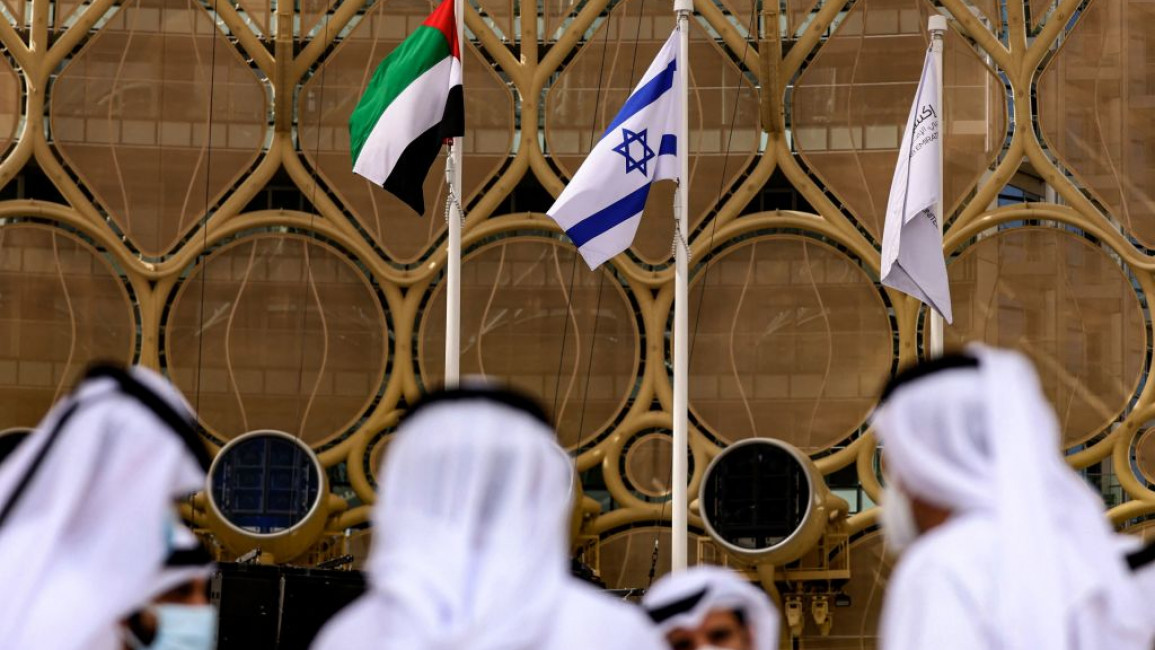Israel signs free trade agreement with UAE in first major deal since normalisation with Arab states
Israel signed a free trade agreement with the UAE on Tuesday, its first big trade accord with an Arab state since normalising relations with several countries over one year ago in a move that angered much of the Arab world.
"Done," Israel's Ambassador to the UAE Amir Hayek said on Twitter, replying to another tweet he posted earlier saying "the UAE and Israel will sign FTA in the next hour."
President of the UAE-Israel Business Council Dorian Barak said the trade agreement defined tax rates, imports and intellectual property, which would encourage more Israeli companies to set up offices in the UAE, particularly in Dubai.
#UAEIsraelCEPA is an unprecedented achievement. Businesses in both countries will benefit from faster access to markets and lower tariffs as our nations work together to increase trade, create jobs, promote new skills and deepen cooperation. Thank you Ohad Cohen for your efforts! pic.twitter.com/NIaLFp30L8
— Mohamed Al Khaja (@AmbAlKhaja) May 31, 2022
The council predicts there will be almost 1,000 Israeli companies working in or through the UAE by the end of the year.
"The domestic market doesn't represent the entirety of the opportunity. The opportunity is really setting up in Dubai, as many companies have, in order to target the broader region," Barak told Reuters by phone.
Ahead of the signing, Israel's economy ministry said the accord would remove tariffs on food, agriculture, cosmetics, medical equipment and medicine.
"Together we will remove barriers and promote comprehensive trade and new technologies, which will form a solid foundation for our common path, will contribute to the well-being of citizens and make it easier to do business," Israel's Minister of Economy and Industry Orna Barbivai said on Monday.
The agreement was signed amid escalating violence in Jerusalem as extremist Israelis took part in the annual 'flag march' over the weekend and systematically attacked Palestinians, including the elderly.
The UAE foreign ministry on Monday condemned the storming of the Al Aqsa mosque in Jerusalem by "extremist settlers under the protection of Israeli forces".
The foreign ministry, in the written statement, also asked: "Israeli authorities to take responsibility for reducing escalation and ending all attacks and practices that lead to the continuation of tensions while underscoring the need to exercise maximum restraint to avoid further instability."
The same day invited media were told they could no longer attend the signing. No reason was given for the sudden change.
For oil-rich UAE, the deal with Israel is its second bilateral free trade agreement after signing a similar accord with India in February. It is in bilateral trade talks with several other countries, including Indonesia and South Korea.
The UAE has been aggressively pursuing these deals in a bid to strengthen its economy and status as a major business hub following the hit it took from the coronavirus pandemic.
Israel and the UAE established ties in September 2020 in a US-brokered deal known as the Abraham Accords. The agreement was condemned by Palestinians and allies for overturning years of Arab policy to isolate Israel due to their systemic human rights abuses against Palestinians.
Bahrain, Morocco and Sudan also recognised Israel in the same year.

![The brutal assault on Khan Younis has killed dozens and displaced thousands more [Getty]](/sites/default/files/styles/image_330x185/public/2024-07/GettyImages-2162526709.jpg?h=d3eda8cf&itok=n5N-o8p5)
![Members of the Algerian delegation threw roses into the Seine [Getty]](/sites/default/files/styles/image_330x185/public/2024-07/GettyImages-2162980872.jpg?h=199d8c1f&itok=h_3o_TOL)
